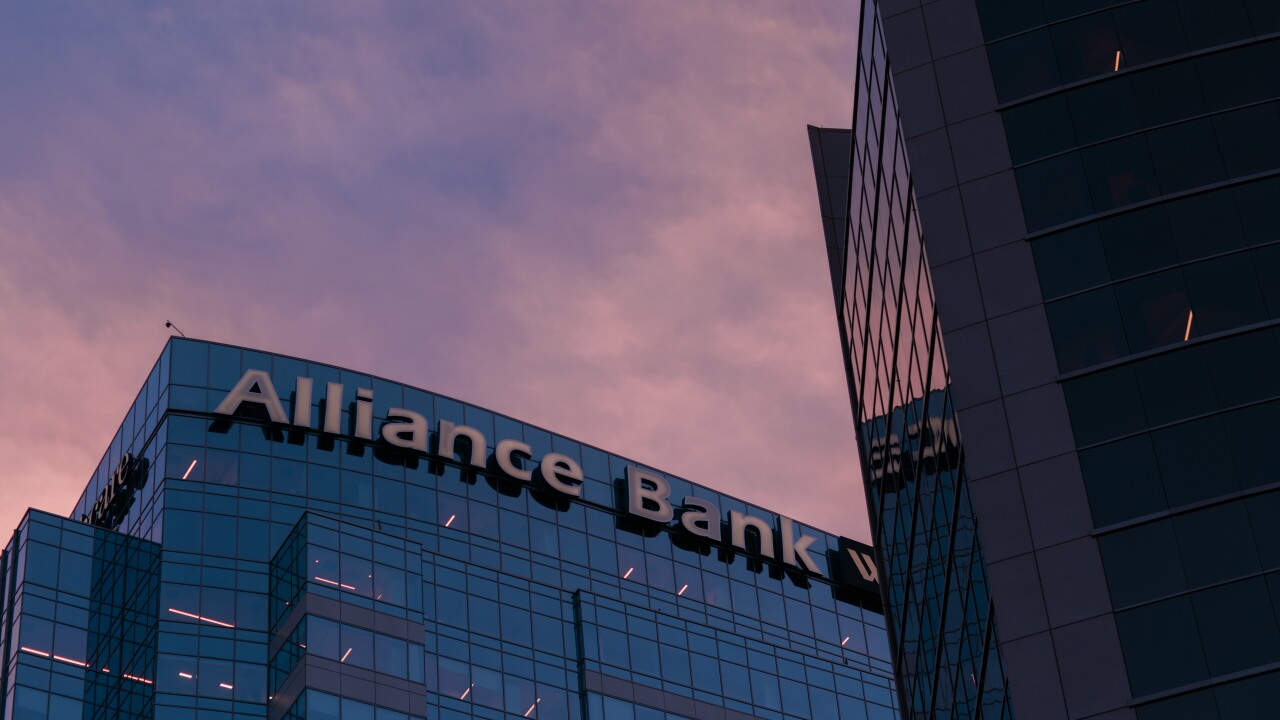Sears, Roebuck and Co., long feared by banks as a potentially dominant competitor, abruptly announced plans Tuesday to pull out of the banking business.
The Chicago retailer said it would spin off its Dean Witter Financial Services Group - including the potent Discover card business - by the end of next year. Sears also plans to sell a unit that includes a large mortgage banking company and a thrift.
Bankers' Fears
The plan - billed by Sears as a way to enhance shareholder value and pay down $3 billion of debt - represents the dismantling of one of the country's best-known "financial supermarkets."
As the empire took shape in the mid-1980s, it became a focal point of bankers' fears that giant competitors, offering one-stop shopping for a variety of financial services, would swoop down and steal away their business. "The only thing we have to fear is Sears itself," was the way William Kennedy, president of the American Bankers Association, put it in 1982.
The financial supermarket approach has largely fizzled. But bankers should not breathe too easily because of Sears' retreat. For example, the Discover card. which under Sears rapidly became a dominant force in the credit card market, is not going away. It will live on as part of an independent Dean Witter.
And analysts say it may be more competitive than ever, since top management will be focused solely on financial services. "I would be more scared, not less," said Robert Albertson, an analyst with Goldman, Sachs & Co.
Sears said it plans to sell up to 20% of the Dean Witter unit in an initial public offering in the first quarter of next year. Sears plans to distribute the remainder of its stake to shareholders by the end of next year.
Philip Purcell, the unit's highly regarded chairman, is expected to remain in that capacity after the spinoff, a Sears spokesman said.
Coldwell Banker on Block
In another leg of the restructuring, Sears said it plans to sell its Coldwell Banker Residential Services Group, including Sears Mortgage Corp., Sears Savings Banks, a large realty brokerage, and a corporate relocation business.
Although Sears said it would offer these businesses as a package, some real estate experts speculated that the group may ultimately be broken up and sold to separate buyers. One senior real estate executive said he could not think of any company that would either want or be able to absorb the entire package.
Meanwhile, Sears will,keep its hands in financial services through its large Allstate Insurance Group. That operation will keep Sears firmly in banks' sights in the field of asset management for consumer, noted Edward Furash, a Washington, D.C.-based consultant.
"That's the fastest growth area that remains in financial services," he said.
A Narrower Focus
Though formidable, the Allstate business is far more narrowly focused than Sears' current strategy in financial services. "They're walking away from financial services to some extent," John Keefe, president of Keefe Worldwide Information Services.
As the Sears restructuring is executed, bankers will be looking especially closely at the fate of Discover. Once dismissed as a flaky, misguided product, Discover has gone on to make Sears the second-largest issuer of bank credit cards. More than 40 million people hold Discover cards, with a total balance of more than $15 billion.
Alison Deans of Smith Barney, Harris is Upham & Co. said the shift of Discover from Sears to an independent Dean Witter should not disrupt the card program.
"If they had tried to spin it off four of five years when Sears was still pumping in a lot of money, that would have been a different story," she said. "But Discover is on its own two feet now."
Discover earned $131.6 million in the first half of this year, or more than half of the Dean Witter Group's total profits.
Capital Resources
Discover also may be able to tap its public ownership for more capital to expand, added Peter Dimsey, president of the U.S. region for MasterCard International.
"We regard them as a big competitor and will continue to do so," he said.
But as part of an independent securities firm that is separate from Sears, Discover will lose a powerful marketing tool, said Atlanta Consultant Bruce Brittain.
"The image is that Sears is trustworthy and will be here forever," he said. "There are lots of folks out there who don't like or trust brokerage firms."
Rate May Have to Stay High
John Russell, a.spokesman for Banc One Corp., added that the planned stock offering of Dean Witter may force Discover to maintain its relatively high interest rates on Discover, to keep profits up. Discover is the last big issuer to charge 19.8% to all consumers.
In the sale of the Coldwell Banker operations, bankers will be following the fate of Sears Mortgage Corp. The unit, currently ranked No. 8 among all mortgage originators nationwide, is expected to write $11 billion of mortgages this year. It services about $25 billion worth.
The mortgage unit, based in Illinois, sells some of its loan to Sears Savings, based in California. The thrift, with $5.4 billion in assets, ranked No. 28 among all thrifts at the end of last year.
Sears Savings Bank, which has just one office, held some $3 billion in brokered deposits at the end of the first quarter, three times more than any other thrift, according to Sheshunoff Information Services Inc.
Sears bought the thrift from the Federal Savings and Loan Insurance Corp. and sold some branches to Citicorp Savings a number of years ago. That decision to jettison the retail deposit-gathering network may make the S&L difficult to sell, according to some analysts, because the government is restricting the use of brokered deposits.
Only well-capitalized S&Ls can use brokered deposits without restriction. Adequately capitalized S&Ls need a waiver. Sears, which was adequately capitalized, has a two-year waiver, according to an industry source.





